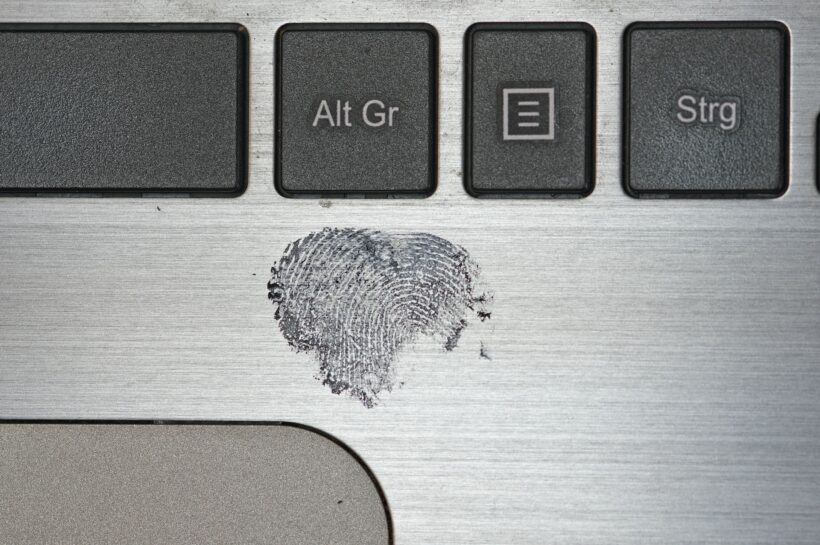Investigating crime requires the combination of multiple scientific methods and techniques which aim at helping the lead detective or investigator solve the crime. Depending on the criminal offense, different types of forensics investigators will lead the case investigation. In today’s technology age, forensics investigators who specialize in computers and cybercrime stand at the top of the list.
As cybercrime increases rapidly, so does the need for experts in the field of computer forensics. These experts help law enforcement officials and other forensics professionals to maintain order and safety in online and offline spaces. Although computers are frequently the target of criminal activity, they are also used nowadays to help trace criminals and their illegal activities. If you are interested in a career path that enables you to fight the real crime through the screen, read on as we unfold the steps you need to take to become a computer forensics investigator.
What Is a Computer Forensics Investigator?
Computer forensics investigators play a vital part in managing the safety and well-being of the public. They work closely with law enforcement agencies, business firms, and government agencies to identify cyber security threats and try to neutralize them by gathering data from computers and preserving, analyzing, and investigating the information. If such an investigation is done correctly, the investigators and other law enforcement actors can use the evidence effectively in a legal case.
What does a computer forensics investigator do?
Computer forensics investigators are responsible for granting organizations assistance in managing cyber risk by gathering digital information and investigating network systems. The profession of a computer forensics investigator comes with many tasks, such as:
- Protecting computer systems.
- Identifying lost files after a cyber attack.
- Recovering lost or damaged assets.
- Helping build cases against criminals.
- Gathering digital evidence from networking systems.
- Providing reports and feedback on cybercrimes.
- Providing testimony whenever required.
How to Become a Computer Forensics Investigator
To learn how to become a computer forensics investigator, or how to become a computer forensics analyst, forensics scientist, or any similar profession, you first have to understand the requirements regarding the education, the skills, and any other qualification you should pursue. Continue reading as we go through all the steps necessary to become a computer forensics investigator.
Education
For most entry-level positions in the computer forensics department, employers require a bachelor’s degree in a field related to computer forensics investigation, such as computer forensics, computer, and information security, computer science, computer engineering, software engineering, cyber security, or similar area. Such degrees will equip you with a foundation in investigation and computer use, developing technologies, methods, and techniques used in the industry and by cyber attackers.
Skills
As with many other jobs, when working towards becoming a successful computer forensics investigator, you need to develop several technical and soft skills, including:
Computer skills
As a computer forensics investigator, you will work with computers most of the time, that is why it is important that you become skilled at using them. Starting from basic and essential computer functions to using more advanced software, developing your computer skills is crucial to navigating through all the necessary data.
Operating system skills
As a computer forensics investigator, you will need to know how to effectively locate, collect and retrieve data from different operating systems, including Windows, Android, Linux, macOS, Unix, and others.
Malware analysis skills
Some tasks will require you to analyze or reverse engineer a piece of malware. Although a challenging skill to develop, having a good grasp of malware analysis will be invaluable for understanding how a cyber attack happened.
Critical thinking skills
Since computer forensics investigators help solve crimes, they need to have strong critical thinking skills. Such skills enable them to reveal any information that was damaged, deleted, or simply overlooked by the other investigators.
Communication skills
When combating crime, you will be working closely with other professionals from different fields and preparing reports and summaries to share with them. Since not every professional understands technology to the degree of a computer forensics investigator, the development of communication skills will enable you to adequately convey the information, stats, examinations, and conclusions to the other workers.
✅ Request information on BAU's programs TODAY!
Qualifications
Although earning a professional certification in the field of computer forensics is not a requirement, you can still benefit from it by legitimizing yourself as a professional, gaining an advantage on the job market, and preparing for the role and responsibilities. The Global Information Assurance Certification (GIAC) is a popular entity specializing in technical and practical certification, offering various options, such as the Certified Forensic Examiner (GCFE) certification, which would be ideal for our career choice exploring.
Moreover, obtaining certifications that are not directly related to computer forensics but are associated with computers, technology, and cyber security can be an excellent addition to your resume and future employment opportunities.
Computer Forensics Investigator Job Outlook
According to the U.S. Bureau of Labor Statistics (BLS), professions related to forensics science technology, including the position of a computer forensics investigator, are projected to grow 16% from 2020 to 2030. This average is much better when compared to the average growth for all occupations.
Computer Forensics Investigator Salary
Last but not least, let’s discuss the computer forensics salary. According to reports, the average salary for forensics investigators in the United States is $56,496 per year. This salary may vary depending on your exact role in the organization since entry-level positions earn around $36,902 per year. In contrast, forensics investigators in senior positions can earn up to $86,494 per year.
Final Thoughts
Computer forensics investigators provide a vital and unique perspective into criminal investigations by making use of digital evidence. If you are interested in a lucrative career filled with many opportunities that combine technology and combating crime, then start following our guide on how to become a computer forensics investigator. Computer systems offer a new world full of information that can easily be overlooked, but someone like you can help bring the evidence to light and the criminals to justice.












